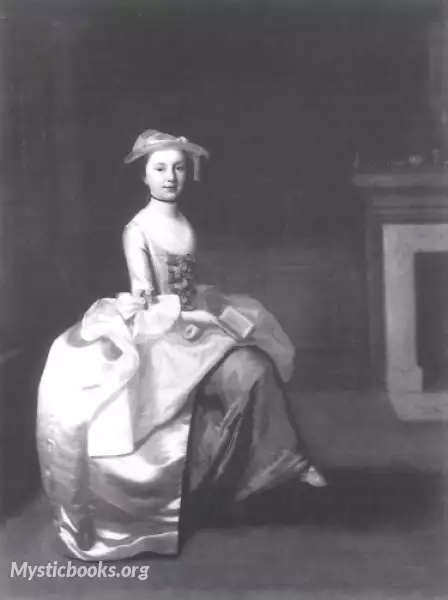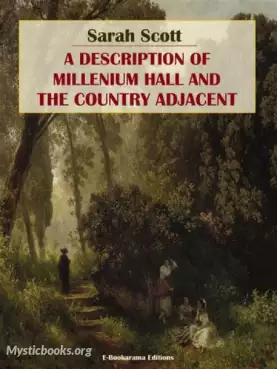
Timeline
Title
Country/Nationality
Sarah Scott
Sarah Scott was an English novelist, translator, social reformer, and member of the Bluestockings. Her most famous work was her utopian novel A Description of Millenium Hall and the Country Adjacent, followed closely by the sequel The History of Sir George Ellison.
Sarah's father, Matthew Robinson, and her mother, Elizabeth Drake, were both from distinguished families, and Sarah was the youngest of nine children. Although born in Yorkshire, she spent much time with her siblings in Cambridge, England, where her grandmother, Sarah Morris Drake, lived with her stepgrandfather, Dr. Conyers Middleton, a famous scholar at Cambridge University. All but one of her brothers would go on to a highly accomplished career, yet her elder sister, who would later become the writer and social activist Elizabeth Montagu, became the most accomplished, earning fame in literary circles as a critic of Shakespeare and founder of the Bluestockings, of which Sarah also became a member. The sisters were emotionally close in their early years. Although Elizabeth was much more acclaimed as an author, Elizabeth often considered Sarah to be "superior in certain respects, particularly intellectual and literary interests, in which she encouraged her." The two regularly corresponded with each other in letters which have been preserved, along with other letters Sarah wrote throughout her life, discussing such matters as "French and English literature and histories, writing, translation, and politics." Sarah's letters also revealed an early love of literature, especially the works of Spenser, Sidney, Milton, Swift, and Voltaire.
In the late 1740s, Sarah contracted to marry George Lewis Scott, a friend of the family from Canterbury who was twelve years older than she. He had no profession or private income, however, and Sarah's dowry amounted to only £1,500; so, before the two could wed, Sarah helped to secure George a position as a sub-preceptor to George, Prince of Wales (later King George III), who had lately succeeded his father, Frederick, upon Frederick's death in March 1751.
In 1763, Lady Barbara gained a pension of £300, which floated the household finances sufficiently, and Sarah did not write for a couple of years. But with Lady Barbara's death in 1765 and with the encouragement and insistence of her sister, Sarah again began writing. The History of Sir George Ellison was published in 1766. This sequel to Millenium Hall portrays the eponymous narrator's "charitable deeds" inspired by his visit to Millennium Hall. His actions include "institut[ing] reforms on his plantations in Jamaica and devis[ing] schemes to relieve the poor in England, employing aged laborers on the grounds of his house, initiating a fund for the release of prisoners, and paying for the educations of females of different ranks." Again, the novel was utopian, but it also contained elements of the "patriot kings" that Sarah wrote about in her political writings.
The next year, Sarah attempted to create a real Millennium Hall in Buckinghamshire, a "communal household" that would include "a school and other charitable institutions for the impoverished community." Sarah invited fellow writer Sarah Fielding, among others, to come live with her. Each member invested £50 into the project. Sarah's sister Elizabeth Montagu donated livestock, land, and staff. Even though the project began with success, "financial difficulties, ill health, and quarrels between the members of the community led to the eventual dissolution of this real-life Millenium Hall."
After some work in translation and educational writing that was never published, Sarah published in 1772 The Life of Theodore Aggrippa d'Aubigne. As a response to emerging populism this work was about the life of a Protestant who fought against both mob rule and the absolute monarchy of the king. Sarah published in that same year her final novel, The Test of Filial Duty, which was an epistolary novel addressing the rights of a daughter to choose her husband.
In 1775, Edward Montagu, Elizabeth's husband, died, and Elizabeth gave Sarah £200 a year. In 1778, Sarah's father died, which gave her more money. She produced no more published works in her lifetime. After a lengthy illness, Sarah died on 11 November 1795 in Catton, Norwich. Per instructions Sarah left, most of her letters were destroyed by executor of her estate. By the 19th century, her name was largely forgotten, and her works were attributed to other writers, including novelist and playwright Oliver Goldsmith. Renewed interest in Sarah Scott and her work has emerged in recent literary criticism.
Books by Sarah Scott

A Description of Millenium Hall and the Country Adjacent
Utopian novel by Sarah Scott, published in 1762 describes women living in complete harmony.